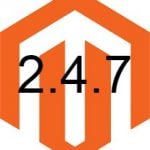How to Become a Rockstar Node.JS Developer (tutorials, blogs, and books)

Being a key development trend of 2015, Node.js will probably get much more attention next year. Therefore, I propose you to get a deeper insight into its competitive advantages over other similar solutions with the following Node.js guide. If you don’t trust the tool just because it is a trendy platform that everyone else uses, it’s time to change your opinion.

On the Firebear blog, there are already three articles related to Node.js. The first one describes key features and aspects of the runtime environment. Besides, there are examples of use and Node.js CMS listed in the article. If you are new to the platform, start your Node.js development here: Node.js (Best CMS, E-Commerce systems, and Open Source projects).
Though there are two other important articles on the blog – The Best Node.js Frameworks and Tools and The Best Node.js Hosting Solutions – I recommend you to check them after reading the below tutorial, unless you are familiar with Node.js development and looking for some reliable frameworks and hosting solutions.
Table of contents
- 1 Pros of Node.js development
- 1.0.1 If you are a JavaScript developer, you already know Node.js
- 1.0.2 Node.js is a lightning fast environment
- 1.0.3 There are tons of tools for Node.js development
- 1.0.4 The same language everywhere
- 1.0.5 Real-time was never so easy
- 1.0.6 Data streaming capabilities
- 1.0.7 Automated synchronization between client and server
- 1.0.8 Reliability
- 1.0.9 Tons of hosting solutions for Node.js
- 2 Node.js vs Java and .Net
- 3 The ultimate list of Node.js resources
- 3.0.1 Node.js
- 3.0.2 npm
- 3.0.3 Nodeschool.io
- 3.0.4 How to Node
- 3.0.5 Tuts+ Node.js Courses
- 3.0.6 Planet Node.js
- 3.0.7 NodeCloud
- 3.0.8 Node.js Weekly
- 3.0.9 The Node Up Podcast
- 3.0.10 Node.js Tutorials
- 3.0.11 Node.js Videos
- 3.0.12 Node.js Screencasts
- 3.0.13 Node.js Books
- 3.0.14 Node.js Courses
- 3.0.15 Node.js Blogs
- 3.0.16 Node.js Podcasts
- 3.0.17 Node.js Modules, Tools, and Frameworks
- 3.0.18 Other resources related to Node.js
Pros of Node.js development
If you are a newbie, go through these key reasons to use the platform. I’ve already mentioned them in one of Firebear posts, but they are fully described in this Node.js tutorial below.
If you are a JavaScript developer, you already know Node.js
By using rich client frameworks and RESTful APIs, or writing your own solutions in jQuery, you spend tons of time and mental energy. Of course, you can still rely on usual solutions, but you will never find any arguments against using Node.js instead. With it’s aid, you will simplify lots of routine processes without any need to study something new and complicated.

Node.js is a lightning fast environment
Due to the V8 engine, Node.js compiles JavaScript into native machine code. As a result, you get brilliant productivity and supersonic speed when it comes to JavaScript execution. Besides, there is an event loop in Node.js. Being a single thread, it utilizes asynchronous approach for performing I/O operations. Thus, Node.js consumes much less memory in comparison to synchronous operations, so reading and writing to the filesystem, the database and network connections are executed extremely fast in Node.

There are tons of tools for Node.js development
, , , , , and other solutions simplifies Node.js development even more. You can easily get all necessary solutions and start creating your apps with all advantages of JavaScript’s capabilities.

The same language everywhere
Node.js supports MongoDB and other similar databases. It means that you can use Javascript on your client, server, and in database, keeping everything in a native JSON format from browser to disk.

Real-time was never so easy
Development with Node.js opens wide opportunities for creating such multi-user, real-time web apps as games and chat due to the event loop and the websocket protocol. For instance, you can utilize – a popular websocket library – to make your development dead simple.

Data streaming capabilities
Node.js is very good at transcoding both audio or video formats while uploading files. Besides, processing time is significantly reduced compared to other methods. Moreover, there is the ability to read/write streams to both websockets and HTTP embedded into Node.

Automated synchronization between client and server
There are even more opportunities related to Node.js development. With the runtime, you can easily write web apps that use a single codebase on client and server, automatically synchronizing data between them. You just need the framework, which automatically sends data changes from the server to the client and vise versa, co any webpage reacts automatically updating itself.

Reliability
Despite Node.js is an open source project, it is sponsored by Joyent and supported by Microsoft, Paypal, Yahoo, and other market giants. Thus, it is extremely reliable platform which is constantly growing; and there is a huge community around it.

Tons of hosting solutions for Node.js
Once again, you can check this post related to Node.js hosting solutions, to see, how influential is the runtime. Even such PaaS mastodon as Heroku now provides a support for Node.

But what about other similar solutions? Is Node.js as good as its competitors? You will find the answer in the following part of this Node.js tutorial.
Node.js vs Java and .Net
Despite Java and Microsoft .Net are the most popular runtime environment and framework for creating mobile, web, and IoT applications aimed at large-scale production scenarios, they are far from being the best solutions.
For example, Java is famous for its rock-solid foundation, threading features, IDE support, debugging capabilities, and wide variety of libraries. At the same time, it is relatively slow when it comes to development. Moreover, Java is a little bit outdated: with its burden of legacy overhead, it is unable to create conditions for streamlined development. In its turn Microsoft .Net requires picking an additional language – C#. Compared to Node.js, both looks clumsy and complicated.
As I’ve mentioned above, Node.js development utilizes JavaScript on both the client side and the server side. That’s a big win, since you can rely on similar patterns and libraries for both frontend and backend, improving productivity, spending less resources on maintenance, and reducing development time
Unlike Java and .Net, Node.js is a politically neutral solution, since it is understood by both Java and .Net specialists, who are able to deploy Node.js on a wide variety of infrastructures.
The aforementioned event-driven architecture and a nonblocking I/O API are not available in case of Java and .Net, so both offer a limited range of features, as well as lower productivity. In its turn, Node.js optimizes an application’s throughput and scalability. As a developer, you just need to create simple code. The same is about event loop instead of threads and processes, since it is a unique Node feature.
Of course, Node.js has a lot more benefits over its major competitors, but the aforementioned ones are key advantages. You will discover other positive aspects of the environment with developing your first Node.js applications. The ultimate list of tutorials, courses, books, videos and other useful things, will help you get started with the platform – examine the below section of our Node.js tutorial.
The ultimate list of Node.js resources
nodejs.org is the official Node website. First of all, it offers tools for installing Node.js on your system. Besides, there are enough information to understand what to do with the environment. A solid documentation provides a detailed description of the API. In addition, you can rely on the community page with meetups, learning sites, and third party support options.

npm is the second important website on your way to serious Node.js development. The abbreviation stands for Node Packaged Modules. It is the official Node.js package manager designed for more convenient development and easier code management. The npm registry provides tons of useful modules designed to prevent you from reinventing the wheel.

Nodeschool is a community-driven course that helps its students reduce the learning curve. By walking through a set of Node.js tutorials, you should get the deepest insight into the development of Node.js applications. Moreover, you can get all knowledge on Nodeschool for free.

How to Node is another website dedicated to Node.js development. It covers a wide variety of skill levels, providing tutorials for both newbies and to the hardcore Node.js coders. There is even the creator of Node Version Manager among website’s contributors.

Tuts+ is famous for its courses related to various development techniques, and Node.js is not an exception. The website offers everything from ‘how to get started’ to ‘building Node.js applications.’ Therefore, Tuts+ is good for both beginners and experienced developers.

Sometimes, it is quite difficult to dig something on the Internet due to a constant flow of new data. Luckily, there are resources like Planet Node.js. The website gathers content from top blogs related to Node.js and aggregates it to an RSS feed.

NodeCloud is a similar solution. Being a resource directory, it gathers Node.js-related websites. The platform utilizes Alexa to evaluate the popularity of each project. It uses PhantomJS to create screenshots.

There is even a free weekly email roundup of Node.js news and blog posts by Peter Cooper. Node Weekly sends technology-specific newsletters with hard to find tidbits related to the environment, so it’s definitely worth your attention.

This is one the best podcasts about Node.js. Once a month, you will be able to dive deep into the world of Node.js with such top developers as Mikeal Rogers and Daniel Shaw.

Node.js Tutorials
Node.js Videos
Node.js Screencasts
Node.js Books
Node.js Courses
Node.js Blogs
Node.js Podcasts
Node.js Modules, Tools, and Frameworks









